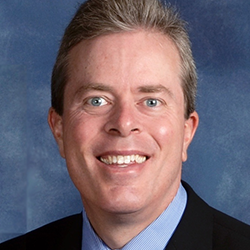 David Beymer (IBM Research - Almaden), Organizer
David Beymer (IBM Research - Almaden), Organizer
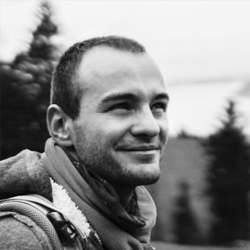 Jannis Born (IBM Research - Zurich), Speaker
Jannis Born (IBM Research - Zurich), Speaker
 Orest B. Boyko (University of Southern California), Panelist
Orest B. Boyko (University of Southern California), Panelist
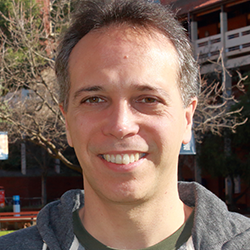 Gustavo Carneiro (University of Adelaide), Organizer
Gustavo Carneiro (University of Adelaide), Organizer
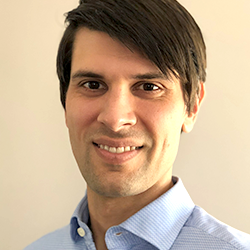 Compas Colin (NVIDIA), Speaker
Compas Colin (NVIDIA), Speaker
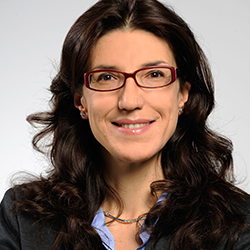 Maria Gabrani (IBM Research - Zurich), Organizer
Maria Gabrani (IBM Research - Zurich), Organizer
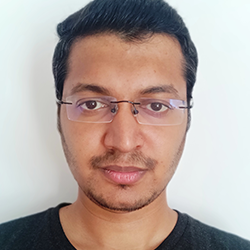 Gautam R. Gare (Carnegie Mellon University), Speaker
Gautam R. Gare (Carnegie Mellon University), Speaker
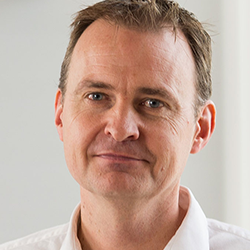 Bram van Ginneken (Radboud University Medical Center), Speaker
Bram van Ginneken (Radboud University Medical Center), Speaker
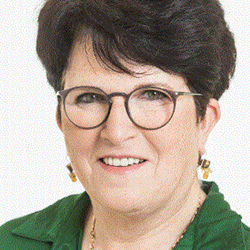 Michal Guindy (Assuta Medical Center), Organizer
Michal Guindy (Assuta Medical Center), Organizer
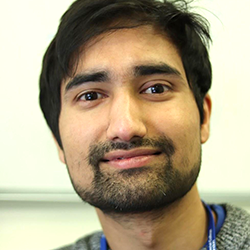 Bishesh Khanal (NAAMII), Panelist
Bishesh Khanal (NAAMII), Panelist
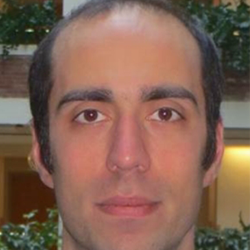 Ender Konukoglu (ETH-Zurich), Organizer
Ender Konukoglu (ETH-Zurich), Organizer
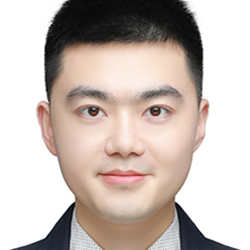 Yunfei Long (Huawei Technologies), Speaker
Yunfei Long (Huawei Technologies), Speaker
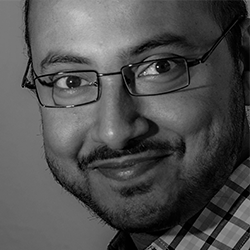 Anirban Mukhopadhyay (TU Darmstadt), Speaker
Anirban Mukhopadhyay (TU Darmstadt), Speaker
 Itamar Offer (Sabar Health), Panelist
Itamar Offer (Sabar Health), Panelist
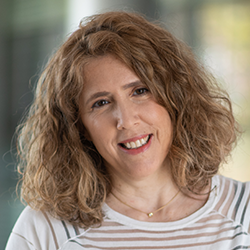 Michal Rosen-Zvi (IBM Research - Haifa), Organizer
Michal Rosen-Zvi (IBM Research - Haifa), Organizer
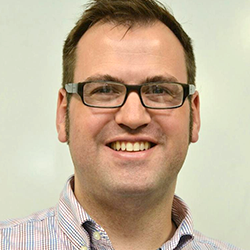 Holger Roth (NVIDIA), Speaker
Holger Roth (NVIDIA), Speaker
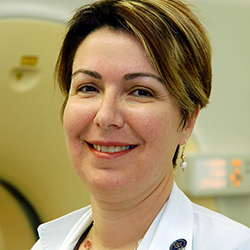 Dorith-Shaham (Hadassah Ein Kerem), Speaker
Dorith-Shaham (Hadassah Ein Kerem), Speaker
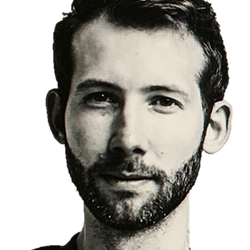 Ruud J.G. van Sloun (Eindhoven University of Technology), Speaker
Ruud J.G. van Sloun (Eindhoven University of Technology), Speaker
Introduction
The global COVID-19 pandemic has accelerated the development of numerous digital technologies in medicine from telemedicine to remote monitoring. Concurrently, the pandemic has resulted in huge pressures on healthcare systems. Medical imaging from chest radiographs to computed tomography and ultrasound of the thorax have played an important role in the diagnosis and management of the coronavirus infection. The rise of artificial intelligence induced a quantum leap in medical image analysis and AI has proven equipollent to healthcare professionals in several diseases. The rapid reaction of the community to the threat of the coronavirus pandemic included numerous initiatives of development of AI technologies for interpreting lung imaging for COVID-19 across different modalities: CT, XRay and ultrasound imaging. This workshop is devoted to the lessons learned from this accelerated process.
In particular, we aim at bringing together radiologists and AI experts to review the scientific progress in the development of AI technologies for Medical Imaging to address the COVID-19 pandemic and share observations regarding the speed, geographical diversity and clinical relevancy of these developments. We aim at understanding if and what was done differently on this front of developing technologies of AI for lung images of COVID-19 patients, given the pressure of unprecedented pandemic - which process should be further adapted, and which approaches should be abundant.
The workshop is part of MICCAI 2021.
Program
In recent years, AI solutions have shown to be capable of assisting radiologists and clinicians in detecting diseases, assessing severity, automatically localizing and quantifying disease features or providing an automated assessment of disease prognosis. AI for medical imaging has received extraordinary attention in 2020. During the current COVID-19 pandemic, lung imaging took a key role in managing COVID-19 patients as well as complementing biomolecular testing methods. The need to save time, cost and lives accelerated the leverage of AI in medical imaging without though fully demonstrating its ability in remediating diseases such as COVID-19. This has been demonstrated by the huge increase in relevant publications.
|
UTC |
CET |
EDT |
CST |
|
|---|---|---|---|---|
|
09:00 |
11:00 |
05:00 |
17:00 |
Introduction |
|
|
|
|
|
|
|
|
|
|
|
|
|
09:30 |
11:30 |
05:30 |
17:30 |
Data definition |
|
|
|
|
|
|
|
|
|
|
|
|
|
10:20 |
12:20 |
06:20 |
18:20 |
Panel: Yunfei Long, Anirban Mukhopadhyay, Itamar Offer. |
|
11:00 |
13:00 |
07:00 |
19:00 |
Lunch Break |
|
12:00 |
14:00 |
08:00 |
20:00 |
Data availability |
|
|
|
|
|
|
|
|
|
|
|
|
|
12:50 |
14:50 |
08:50 |
20:50 |
Panel: Colin Compas, Ruud van Sloun, Bishesh Khanal , Orest Boyko. |
|
13:30 |
15:30 |
09:30 |
21:30 |
Break |
|
13:45 |
15:45 |
09:45 |
21:45 |
Translational research |
|
|
|
|
|
|
|
|
|
|
|
|
|
|
|
|
|
|
|
|
|
|
|
|
|
15:25 |
17:25 |
11:25 |
23:25 |
Panel: Michal Guindy, Gautam Gare, Holger Roth, Dorith Shaham, Bram van Ginneken. |
|
16:10 |
18:10 |
12:10 |
00:10 |
Wrap up |
|
|
|
|
|
|
|
16:15 |
18:15 |
12:15 |
00:15 |
Workshop ends |
Call for workshop papers
You are invited to submit your full paper to the LL-COVID19 workshop in MICCAI 2021.
The MICCAI 2021 workshop on Lessons Learned from the development and application of medical imaging-based AI technologies for combating COVID-19 will be a virtual event and will be held as part of MICCAI 2021 on Oct 1, 2021.
The global COVID-19 pandemic has accelerated the development of numerous digital technologies in medicine from telemedicine to remote monitoring. Concurrently, the pandemic has resulted in huge pressures on healthcare systems. Medical imaging from chest radiographs to computed tomography and ultrasound of the thorax have played an important role in the diagnosis and management of the coronavirus infection. The rise of artificial intelligence induced a quantum leap in medical image analysis, and AI has proven equipollent to healthcare professionals in several diseases. The rapid reaction of the community to the threat of the coronavirus pandemic included numerous initiatives of development of AI technologies for interpreting lung imaging for COVID-19 across different modalities: CT, XRay and ultrasound imaging. This workshop is devoted to the lessons learned from this accelerated process. In particular, we aim at bringing together radiologists and AI experts to review the scientific progress in the development of AI technologies for Medical Imaging to address the COVID-19 pandemic and share observations regarding the speed, geographical diversity and clinical relevancy of these developments. We aim at understanding if and what was done differently on this front of developing technologies of AI for lung images of COVID-19 patients, given the pressure of unprecedented pandemic –which process should be further adapted or newly adopted, and which approaches should be abandoned.
- The workshop will include the following three sections:
-
Session 1:
How to compensate for scarcity of data? Quickly achieving a comprehensive patient cohort for the development of AI technologies, how feasible and important is it in the early days of a pandemic and what are the alternatives that technology can offer? -
Session 2:
What is the role of different modalities? What AI technology on what lung imaging modality played the most important role in combatting COVID-19? What value can be gained from analysis of multi-modal data? In which modalities AI has the largest impact and why? -
Session 3:
Have we learned how to shorten the transition from incubation of AI technology to putting the technology to work at the clinic? What are the barriers we need to still resolve? How has AI assisted the clinical practice?
- We invite computational and clinical experts to submit one of three types of submissions:
- An innovative technological solution
- A Meta-analysis
- A perspective
Papers will consist of a maximum of 7 pages (text, figures and tables) + up to 2 pages for references only. They should be submitted electronically in LNCS style, to the CMT system. Submission guidelines are similar to the MICCAI main conference. The submission should be blinded. Accepted papers will be published in the MICCAI Proceedings in the Springer LNCS Series. All workshop submissions must be original and cannot already be published or considered for publication elsewhere (with the explicit exception of arXiv.org as a form of prepublication of MICCAI contributions).
Looking forward to your submission,
Michal Rosen-Zvi
Maria Gabrani
Michal Guindy
David Beymer
Ender Konukoglu
Gustavo Carneiro
Organizing Committee

Michal Rosen-Zvi, Director for Health Informatics at IBM Research and a visiting Professor at the Faculty of Medicine, The Hebrew University, Israel.
-
Bio
Dr. Rosen-Zvi is a Director of health informatics at IBM Research and a visiting professor at the Faculty of Medicine, The Hebrew University. At IBM Research she co-leads the research strategy of a worldwide team who are experts in AI applied to health data and she is the local senior manager of the IBM Research Haifa department who focuses on deep learning, machine learning and casual inference technologies applied to patients data. Michal holds a PhD in computational physics and completed postdoctoral studies at UC Berkeley, UC Irvine, and the Hebrew University in the area of Machine Learning. She joined IBM Research in 2005 and has since led various projects in the area of machine learning and healthcare. Michal has published more than 40 peer-reviewed papers and served as program committee in conferences such as AAAI, ICML and UAI and reviewer in journals such as Machine Learning and Nature. She serves at various boards and committees such as the Israeli national digital health committee and is elected to serve at the managing board of the Israeli Society of HealthTech.

Maria Gabrani, Manager, Cognitive Healthcare and Lifesciences, IBM Research - Zurich, Switzerland.
-
Bio
Maria Gabrani is a Research Staff Member at IBM Research Zurich since 2001. Her research has focused on image processing and pattern recognition techniques, used to extract meaningful information from data in different application areas, from medical imaging to computational pathology. She is currently a manager of the Cognitive Healthcare and Lifesciences group that focuses on ingesting, analyzing and integrating textual, imaging and molecular data for building health knowledge and disease understanding and supporting decision making in numerous applications, from medical triage, to diagnosis, prognosis and treatment selection and treatment monitoring. She has also global IBM Research roles, as one of the strategists in Future of Health and specifically in the areas of oncology and knowledge representation, as well as a member of the Exploratory Lifesciences Council of IBM Research. Before joining IBM, from 1999 until 2001, Maria worked for Philips Research, in Eindhoven, The Netherlands. She holds a Ph.D and MS degree in Electrical and Computer Engineering from Drexel University, Philadelphia, PA, USA, and a Diploma in Electrical Engineering from Aristotle University, Thessaloniki Greece. She has received numerous awards including several Outstanding technical Achievement awards, from IBM Corporation, and Technical Achievement Award, from IBM Research Division and numerous best paper awards, from NASA/Goddard Space Flight Center, Image Registration Workshop (1997), to GRAIL best paper award, MICCAI (2020), and more than 40 patents.

Michal Guindy, MD, MPA, Head of ventures and innovation division and Chief Radiologist, Assuta Medical Center, Israel.
-
Bio
Dr. Michal Guindy, MD, MPA, received her MD from Ben-Gurion University, and specialized in Radiology in Flinders, Australia and Israel. She received her MPA from Harvard Kennedy School.
Dr. Guindy is the Head of Ventures and Innovation at Assuta Medical Centers and is also Head of Imaging, a department that produces over 600,000 studies annually. In addition, Dr. Guindy is member of the board of Patho-Lab Diagnostics.
Dr. Guindy conducts research initiatives in the field of radiology, pathology, AI and ML. She is involved in medical education as a faculty member of Ben-Gurion University Medical School.
Dr. Guindy held several managerial positions at Maccabi Healthcare Services (HMO), including Risk Management & Patient Safety, laboratory, imaging telemedicine services and medical director.

David Beymer, PhD, Research Manager - Medical Imaging Solutions, IBM Research - Almaden, USA.
-
Bio
David Beymer is a Research Staff Member and a project manager in the AI and Cognitive Software group at the IBM Almaden Research Center in San Jose, California. He earned a Ph.D. in computer science from MIT in 1995, working on automated techniques for face recognition. Since completing his Ph.D., he has studied vehicle tracking, face tracking, person tracking, eye gaze tracking, and eye gaze analytics the University of California at Berkeley, SRI International, and IBM Research. While at the IBM Almaden Lab, he helped co-develop the AALIM clinical decision support system, the Clinical Data Hub patient cohort search tool aimed at clinical researchers, and the Medical Sieve cognitive assistant for radiologists. He most recently worked on medical imaging analytics in CT images for disease detection and clinical decision support in the healthcare industry, teaming with Watson Health Imaging on products like Clinical Review and Patient Synopsis. He has co-authored over 70 research articles in computer vision and medical informatics conferences and journals, and has 14 granted patents for his work at MIT and IBM.

Gustavo Carneiro, Professor of the School of Computer Science at the University of Adelaide, ARC Future Fellow, and the Director of Medical Machine Learning at the Australian Institute of Machine Learning, Australia.
-
Bio
Gustavo Carneiro is a Professor of the School of Computer Science at the University of Adelaide, ARC Future Fellow, and the Director of Medical Machine Learning at the Australian Institute of Machine Learning. He joined the University of Adelaide as a senior lecturer in 2011, has become an associate professor in 2015 and a professor in 2019. In 2014 and 2019, he joined the Technical University of Munich as a visiting professor and a Humboldt fellow. From 2008 to 2011 Dr. Carneiro was a Marie Curie IIF fellow and a visiting assistant professor at the Instituto Superior Tecnico (Lisbon, Portugal) within the Carnegie Mellon University-Portugal program (CMU-Portugal). From 2006 to 2008, Dr. Carneiro was a research scientist at Siemens Corporate Research in Princeton, USA. In 2005, he was a post-doctoral fellow at the the University of British Columbia and at the University of California San Diego. Dr. Carneiro received his Ph.D. in computer science from the University of Toronto in 2004.
His main research interest are in the fields of computer vision, medical image analysis and machine learning.

Ender Konukoglu, Assistant Professor of Biomedical Image Computing at ETH-Zurich, Switzerland.
-
Bio
Ender Konukoglu did his B.S. and M.S. degrees at Bogazici University / Electrical and Electronics Engineering Department in 2003 and 2005. He got his PhD from University of Nice Sophia Antipolis working at INRIA Sophia Antipolis Mediterranean under the supervision of Prof. Nicholas Ayache in 2009.
After the PhD Ender worked as a post-doctoral researcher at Microsoft Research in Cambridge between 2009 and 2012. Between 2012 and 2016 he worked at Athinoula A. Martinos Center for Biomedical Imaging and Harvard Medical School as an Instructor in Radiology and Assistant in Neuroscience. He was a member of the Laboratory for Computational Neuroimaging.
In August 2016 Ender started as an Assistant Professor (tenure-track) of Biomedical Image Computing at ETH-Zurich.
Reviewers (list incomplete)
- David Beymer, IBM Research, USA
- Jannis Born, IBM Research, CH
- Nathaniel Braman, Machine Learning/Computer Vision, Tempus Labs, USA
- Colin Campas, Healthcare, NVIDIA, USA
- Ehsan Dehghan, IBM Research, USA
- Davide Fontanarosa, Faculty of Health, School of Clinical Sciences, Queensland University of Technology, AU
- Maria Gabrani, IBM Research, CH
- Ender Konukoglu, Assistant Professor of Biomedical Image Computing at ETH-Zurich, CH
- Fengbei Liu, Australian Institute for Machine Learning, Univesrity of Adelaide, AU
- Henning Mueller, Institute of Information Systems, HES-SO, Wallais, CH
- Anirban Mukhopadhyay, Interactive Graphics Systems Group, Technical University of Darmstadt, DE
- Jacinto Nascimento, Signals and Image processing Group, Institute for Systems and Robotics, LISBOA, PT
- Deepta Rajan, Machine Learning, PathAI, USA
- Michal Rosen-Zvi, IBM Research, IL
Registration
Please register to MICCAI SATELLITE EVENTSin order to attend the LL-COVID19 workshop.
Important Dates
| Circulation of call for papers: | June 02, 2021 |
| Paper submissions due: | June 30, 2021 (extended) |
| Notification of paper decisions: | July 16, 2021 |
| Camera ready paper due: | July 30, 2021 |
| Workshop proceedings due: | August 06, 2021 |
| Workshop date: | October 01, 2021 |